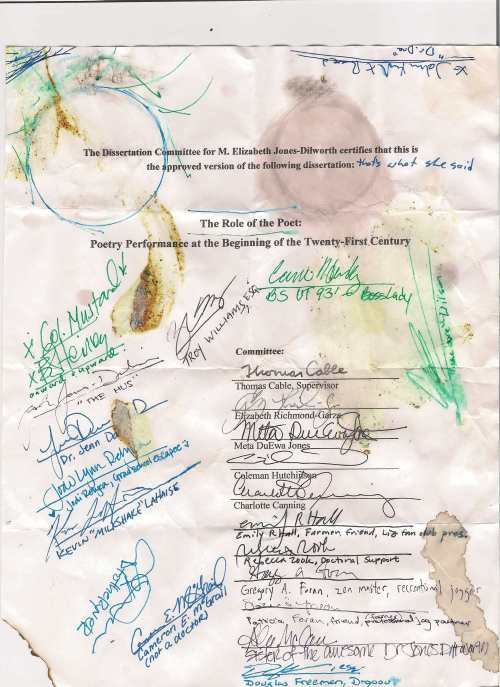I really thought when I turned my dissertation into my committee that my world might end.
I imagined endless amounts of free time to cross off all non-dissertation to-dos. I imagined reading novels on sunny afternoons. I imagined writing long letters to friends. I imagined birds chirping. Constantly.
But the night before I turned it in, I realized my world was going to spin right on–overwhelmed with errands, good intentions, hard work, and even–yes, it’s true–more dissertating.
It was a letdown. On the other hand, I’ve had a few friends who experience great highs at the last moments of dissertating–as they write their conclusions, everything comes together in new, exciting ways. They get a surge of energy, and their committees are only too happy to urge them on.
That feeling you might have, that nothing about the dissertation goes the way you planned it to go, does not end once its turned in, or once you’ve defended, or once you’ve graduated. There are so many milestones that say you’ve “almost” finished, but it’s never really the end until you decide you’re done culling articles or shaping a book around the work you’ve done. That could take years.
I’m happy. But I’ve been astonished at how busy I’ve been, and how the dissertation still seems to need so much of my attention.
When I told my friend M. this, he said, “Yeah, but you’re still done.” But I guess what I’m trying to say, to those in the middle of a big project, is that you can’t plan for that feeling of completeness or relief. It might not come when you’re expecting it.

